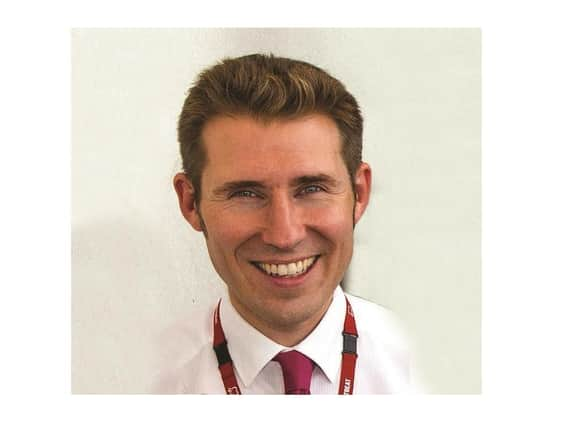Data sector focus: Professor Nicholas Mills on how data can be a boon to health and social care providers


Despite our exceptionally capable and dedicated staff, there is strain at every point in the care pathway – from GP surgeries to hospitals and access to support in the community.
We have made remarkable progress over the last 20 years and Scots are living longer than ever before. The net impact is that the proportion of the population aged over 75 is estimated to double in the next two decades. This huge shift in population demographics needs new ways of delivering care.
Advertisement
Hide AdAdvertisement
Hide AdWhile data isn’t a panacea, it should be at the heart of our plans to build resilience in future care provision. Sharing data can improve communication across health and social care providers. From the evaluation of public health initiatives through to the delivery of care in local areas, there is a major unrealised opportunity for the sharing of data to improve outcomes.
Our team brings together doctors and nurses from emergency medicine, cardiology and laboratory medicine to improve the lives of patients with heart attacks in Scotland. We are supported by the British Heart Foundation and, where possible, we use routinely collected data that has been de-identified. This approach ensures our findings apply to everyone irrespective of their background. For example, while it was known for many years that women have worse outcomes after a heart attack, the reason was unclear. One of the first observations from our data-driven research studies was that we had been substantially under-diagnosing heart attacks in women.
To address this, separate criteria were introduced for the diagnosis of heart attack in men and women across Scotland, which have now been adopted around the world. An accelerated pathway was developed and introduced to safely rule out heart attacks in the Emergency Department, which has helped people avoid unnecessary hospital admissions and improved our efficiency.
How can we harness this data-driven approach for other conditions and improve outcomes more widely? The Data-Driven Innovation programme funded by the Edinburgh and South-East Scotland City Region Deal offers the opportunity to do just this.
The programme will deliver the state-of-the-art Usher Institute innovation hub at Edinburgh BioQuarter in 2023 but work has already begun in bringing together citizens, patients and professionals from the NHS, local authorities and other partners to create innovative, data-driven solutions.
Everyone has a role to play – the programme will also deliver training in a range of areas, from data literacy to data science. Collaboration is essential, so please visit ddi.ac.uk, let us know your thoughts and get involved.
Professor Nicholas Mills, personal chair of Cardiology, @highSTEACS
This article first appeared in the spring 2020 edition of The Scotsman’s Vision. A digital version can be found here.